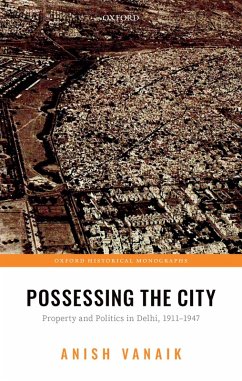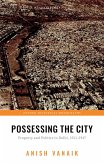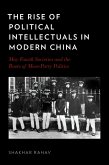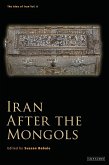Possessing the City is a social history of the property market in late-colonial Delhi; a period of much turbulence and transformation. It argues that historians of South Asian cities must connect transformations in urban space with the economy of the city. Using new archival material, Anish Vanaik outlines the place of private property development in Delhi's economy from 1911 to 1947. Rather than large-scale state initiatives, like the Delhi Improvement Trust, it was profit-oriented, decentralised, and market-based initiatives of urban construction that created the Delhi cityscape. This volume also serves to chart the emerging relationship between the state and urban space in this period. Rather than a narrow focus on urban planning ideas, it argues that the relationship be thought of in a triangular fashion: the intermediation of the property market was crucial to emerging statecraft and urban form in this period. Possessing the City examines struggles and conflicts over the commodification of land, particularly disputes over rents and prices of urban property. The question of commodification can also, however, be discerned in struggles that were not ostensibly about economic issues: clashes over religious sites in the city. Through careful attention to the historical interrelationships between state, space, and the economy in Delhi, this volume offers a novel intervention in the history of late-colonial Delhi.
Dieser Download kann aus rechtlichen Gründen nur mit Rechnungsadresse in A, B, BG, CY, CZ, D, DK, EW, E, FIN, F, GR, HR, H, IRL, I, LT, L, LR, M, NL, PL, P, R, S, SLO, SK ausgeliefert werden.









